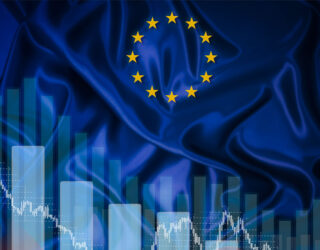The tax impacts on companies in this sector, both through the higher cost of product purchases and through their obligations as taxpayers, in relation to intra-Community acquisitions and imports of non-reusable plastic packaging.
On January 1st of 2023, the Special Tax on Non-Reusable Plastic Packaging, an indirect tax aimed at reducing the use of non-reusable plastics and promoting the circular economy, came into force in Spain. Since its entry into force, the General Directorate of Taxes has published more than 300 binding decisions on this tax, reflecting the numerous doubts and technical problems that have arisen in its implementation. In the absence of a harmonising standard, few countries have adopted a similar measure. In fact, only the United Kingdom has introduced a tax with similar characteristics, albeit with significant differences. Italy has also adopted such a tax, but it has not yet entered into force.
This tax is levied on the manufacture and introduction into Spain of non-reusable plastic packaging, as well as on semi-finished plastic products resulting in the production of such packaging and on plastic products that enable the closure, marketing and distribution of the packaging subject to the tax.
The rules governing the tax establish four main groups of agents who may be affected by the tax: manufacturers, intra-Community purchasers, importers and non-taxpaying purchasers. The first three have the status of taxpayers, which means that they are obliged to determine and pay the tax liability. In addition, the regulation establishes formal obligations, the fulfilment and particularities of which depend on the type of agent.
As it is a single-phase tax, only agents with the status of taxpayers are obliged to pay the tax liability to the Tax Administration. For their part, non-taxpaying purchasers would be those who acquire products already taxed.
The HORECA sector (hotels, restaurants and cafeterias) faces several challenges in relation to this tax. Even though it is not a manufacturing sector (which is the most affected by the tax at the level of obligations), businesses in this sector are also affected by the tax, both directly and indirectly.
On the one hand, on their status of non-taxpaying purchasers, they may be affected by the potential increase in the cost of their purchases if their suppliers have economically charged the tax, i.e. to the extent that the cost of €0.45 per kilogram of plastic has been incorporated by the supplier in the purchase price of the products within the objective scope of the tax.
On the other hand, in the event that they make purchases of foreign products and bring them into Spain, they become taxpayers, either as intra-Community purchasers, or as importers, or both. The tax regulations, in any case, allow them not to have to pay the tax in cases where the amount brought into Spain from abroad is small. Specifically, there is an exemption of 5 kilograms of non-recycled plastic per month for intra-Community acquisitions and a further 5 kilograms per month for imports (an amount which, in comparative law, seems small if, for example, it is considered that, in the United Kingdom, this threshold has been set at 10 tonnes per year).
This taxpayer status obliges them to determine the tax liability and, in the case of intra-Community purchasers, also entails registration in the Territorial Registry, the register of stocks in the Tax Administration’s electronic office and the filing of periodic declarations for the payment of the tax. For their part, importers must enter the quantity of non-recycled plastic in the import SAD so that the Tax Administrations can issue them with an acquittance including the tax settlement. All of this, especially in the case of intra-Community purchasers, requires the necessary adaptation of internal management systems to the requirements of the tax.
In addition, companies in the HORECA sector are confronted with several conflicting issues related to the application of the tax. Some of these are set out below:
- Difficulty in obtaining information from foreign suppliers
One of the main problems which may arise for companies in the HORECA sector which are taxpayers is obtaining the information necessary for its calculation. According to the applicable legislation, the taxable amount is calculated on the basis of the quantity of non-recycled plastic contained in the packaging of products subject to the tax, expressed in kilograms.
Thus, to comply with this obligation, companies must obtain accurate information from their suppliers on the quantity of plastic. Nevertheless, many of the foreign suppliers have no familiarity with this regulation, which makes more complicate the obtaining of this information, especially if the suppliers are only intermediaries in the distribution chain and do not have information on the amount of plastic used. Therefore, in the absence of information or to verify that the information provided is right, it is the Spanish companies themselves who must assume the obligation to determine this quantity of plastic.
- Difficulty in the accreditation of recycled plastic
Another of the main difficulties for companies that are taxpayers is obtaining certificates attesting to the recycled plastic content of the products purchased.
The regulation excludes from the calculation of the tax base the kilograms of recycled plastic contained in the products within the scope of the tax. For the 2023 financial year, a transitional regime was established which allowed the quantity of recycled plastic to be accredited by means of a responsibility statement signed by the manufacturer. However, as of January 1st of 2024, it is required to have a certification issued by an accredited entity for its issuance under the UNE-EN 15343:2008 standard “Plastics – Recycled Plastics – Plastics recycling traceability and assessment of conformity and recycled content”, or the standards that replace it.
This requirement has several drawbacks in practice, as in many cases these suppliers do not have direct access to information on the composition of the packaging because they are not the manufacturers. In addition, Spanish regulations do not apply beyond national borders, so foreign suppliers are not obliged to have this certification. In the absence of this certification, since no other means of proof is possible — as confirmed by the General Directorate of Taxes — tax must be paid on the totality of the plastic contained in the product (including recycled plastic), which generates a higher cost.
The requirement of having accreditation certificate of the recycled plastic is an administrative barrier that can hinder international trade. In many cases, foreign suppliers do not have this information or incur additional costs in obtaining it, making it difficult to comply with Spanish regulations.
- The problem of proving that the packaging is “reusable”
The tax excludes from its application those products which are considered to be “reusable”. The tax rules state that non-reusable packaging is packaging which “has not been conceived, designed and marketed for multiple circuits or rotations throughout its life cycle, or to be refilled or reused for the same purpose for which it was designed“.
The General Directorate of Taxes has pointed out that the consideration as ‘reusable’ of a product depends on its design, conception and marketing, regardless of the use subsequently made of it by the final consumer. Therefore there could be products that meet the condition of ‘reusable’ that are excluded from the tax, being in practice used more than once by the final consumer, and vice versa.
Unlike the condition of recycled plastic, which requires specific certification for its accreditation, the condition of “reusable” can be accredited by any legally admitted means of proof. This freedom of proof has the advantage of making the way of accrediting such a situation more flexible, although it is subject to its admission by the Administration, which may not consider it valid. For this reason, it is important to review the means of proof available in order to check their validity against the Administration.
In short, the HORECA sector is significantly affected by the tax, so it is crucial to analyse the different situations that may arise in each case, in order to determine the tax liability and the formal and material obligations that must be met, giving special emphasis on the purchase of “reusable” products or products containing recycled plastic, in order to obtain the corresponding supporting documentation.
Alberto El Nagar Giménez
Tax Department





